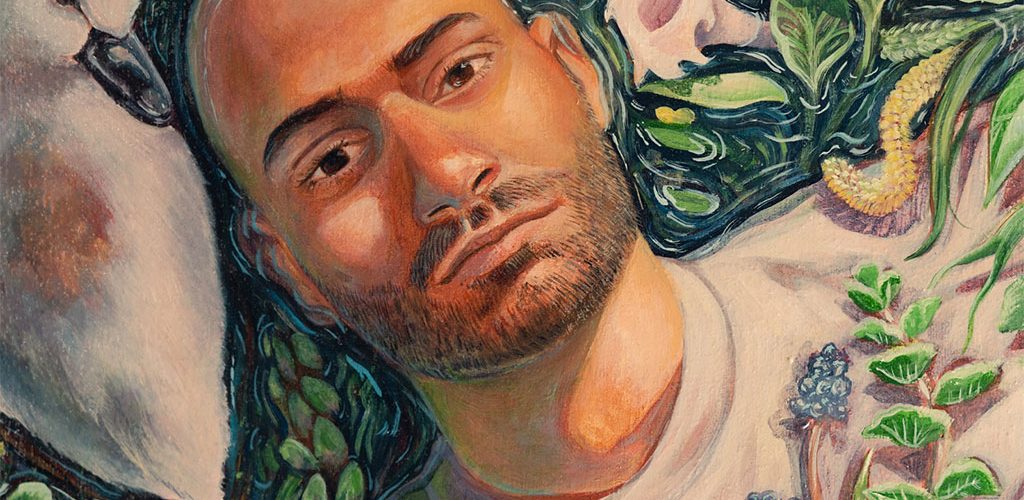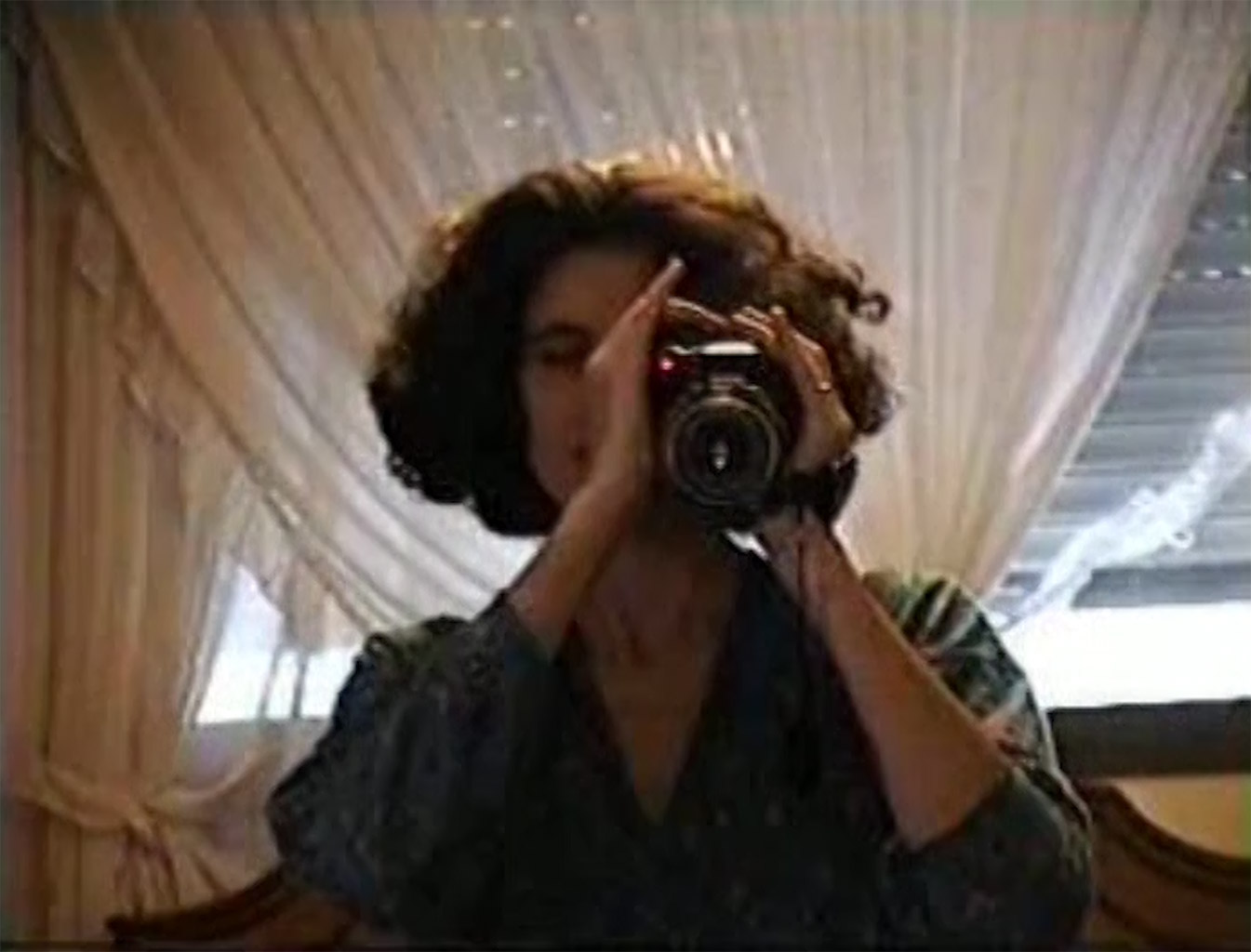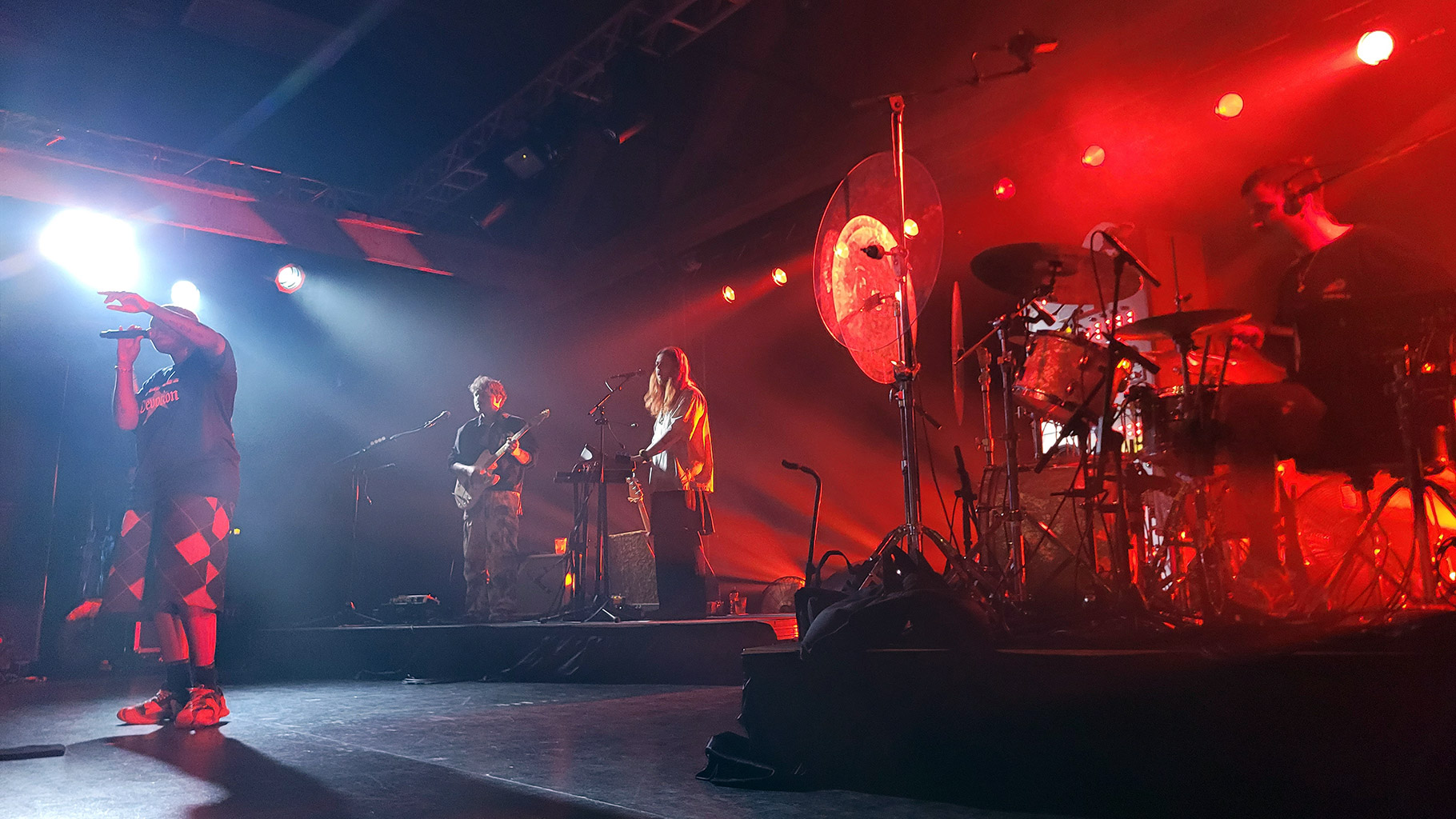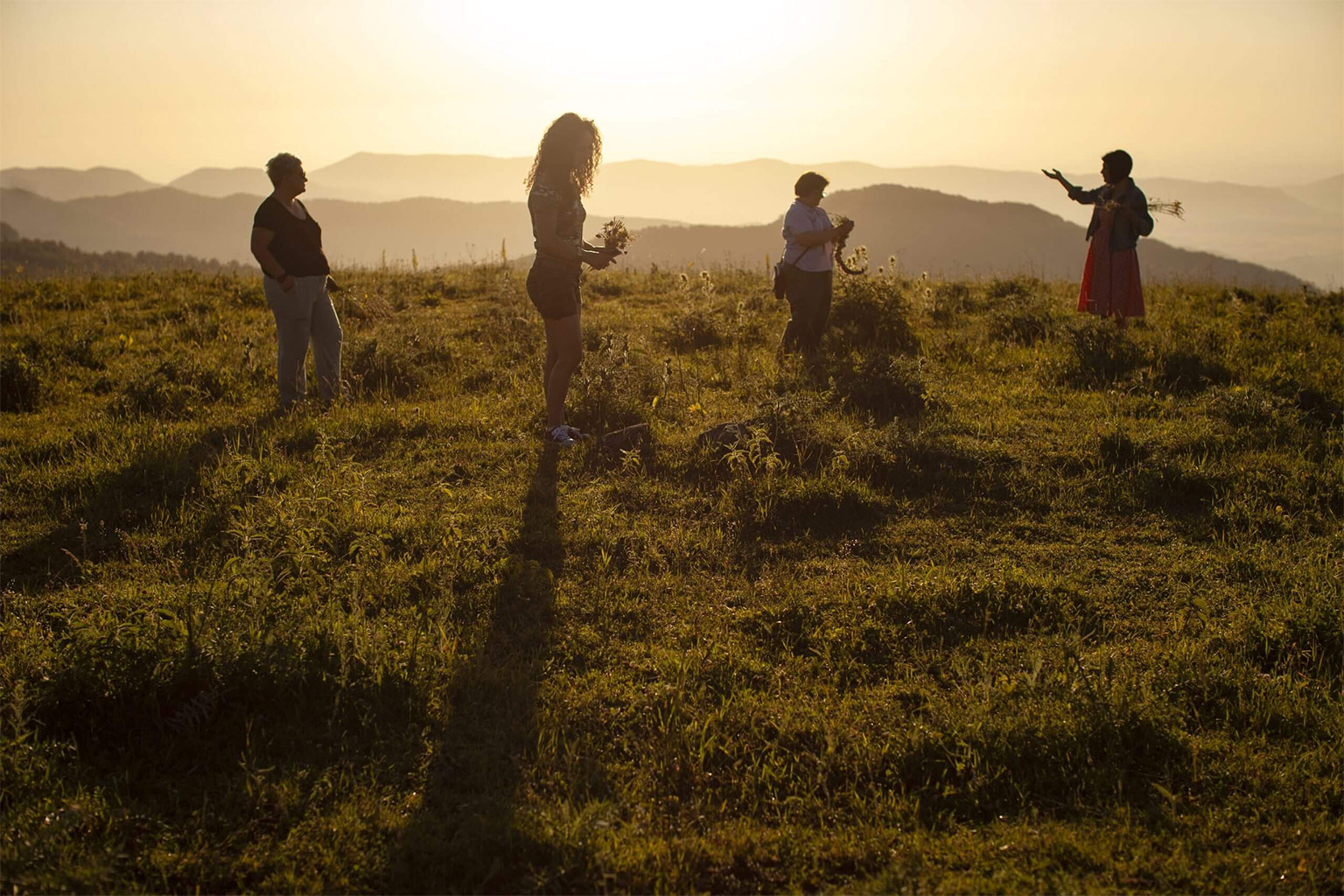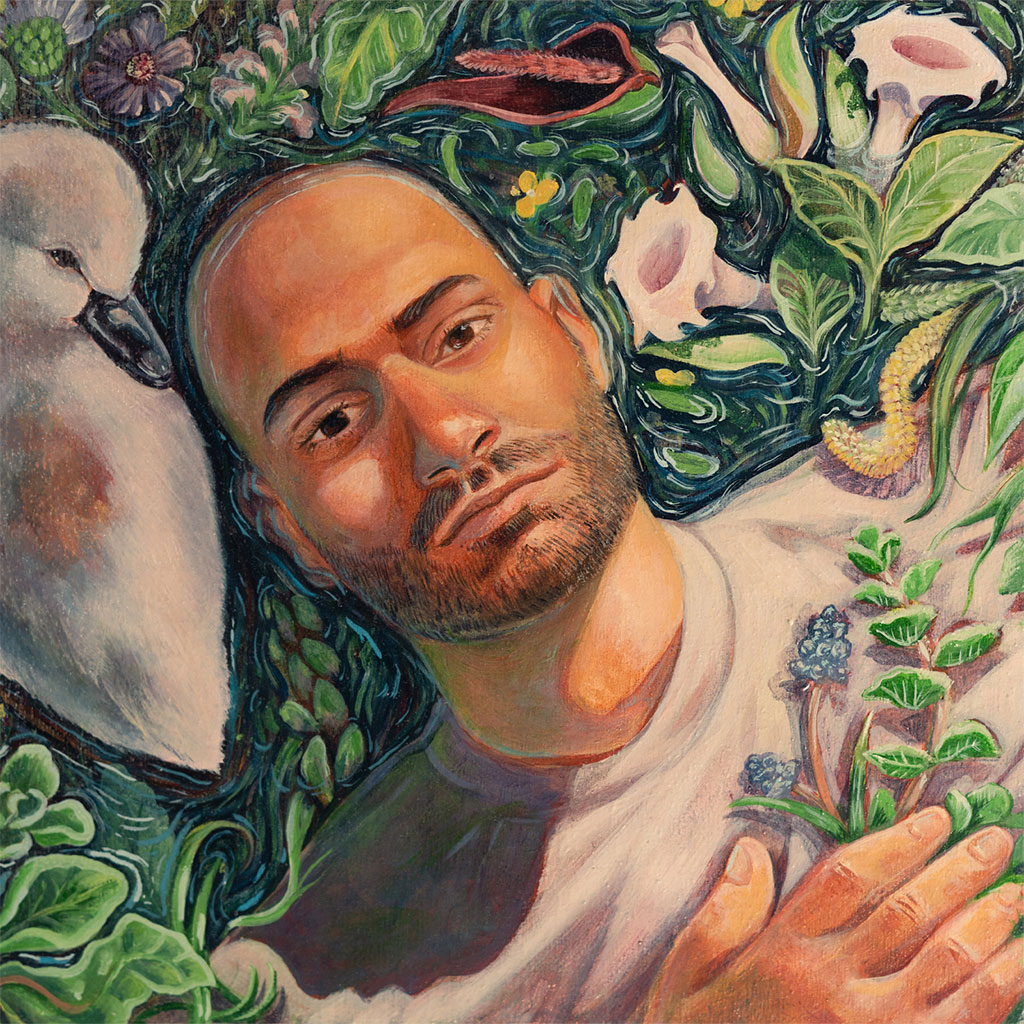
A Colorful Immigration History
As a self-described Third Culture kid — someone who doesn’t fit neatly within either immigrant or stereotypical “American” identities — Ahmad has faced biases which have influenced his understanding of self from a young age.
“I grew up being told… that the lands my hundreds of years of lineage came from was not a real place. I was once told by an elementary school teacher that Palestine didn’t exist,” recalls Ahmad, who was only seven- or eight-years-old at the time. “I didn’t realize I was being disrespected… I went home and I was like, ‘Mama, baba, is that true? Where are we actually from?'”
Through therapy and other healing modalities, Ahmad sought to understand everything that happened before him in order to understand where he wanted to go next, whether in life or music. He reflected on the ways in which he had rebelled against being like his parents when he was young but later found himself doing as they would have done. The result is his first debut record under his own name, despite his long history as a musician and DJ.
“As I’m maturing as an artist, I’ve started to pick out and understand more: ‘Okay, what was nature and what was nurture?'” Ahmad shares.
The backbone of Inheritance is his family’s colorful, multi-continent immigration story, which began with his grandparents fleeing the highly-contested Palestinian territory of East Jerusalem and landing in South America, in search of refuge. His mother was raised in Venezuela and his father in Brazil, where there were large refugee populations; his dad’s family eventually immigrated to the United States in the late ’60s while his mom’s family came in the ’70s.
“[I was] raised with a bizarre amalgamation of New York culture, Palestinian Arab culture and South American culture, which really affected my parents,” Ahmad explains. “You can understand why there was a need for me to take a moment to stop and reorganize the whole litany of things that were influencing my childhood.”
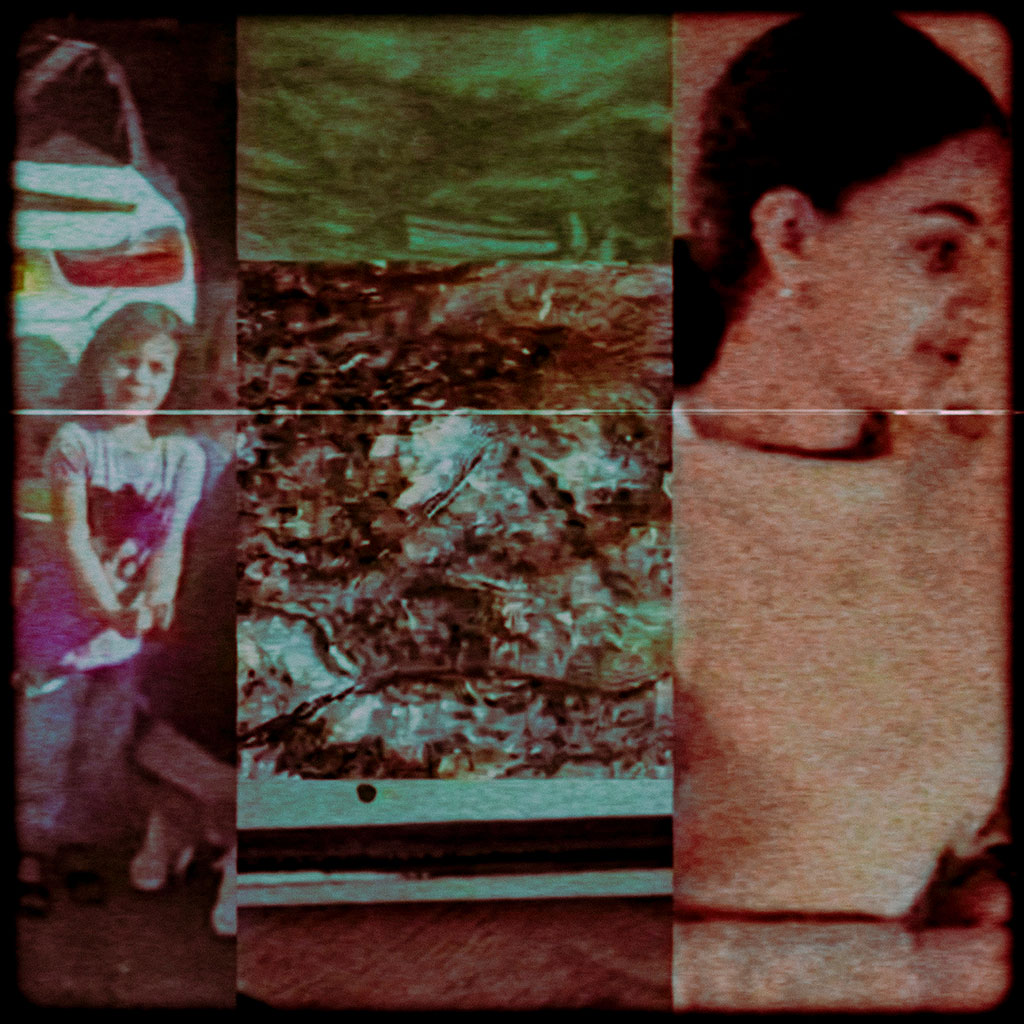
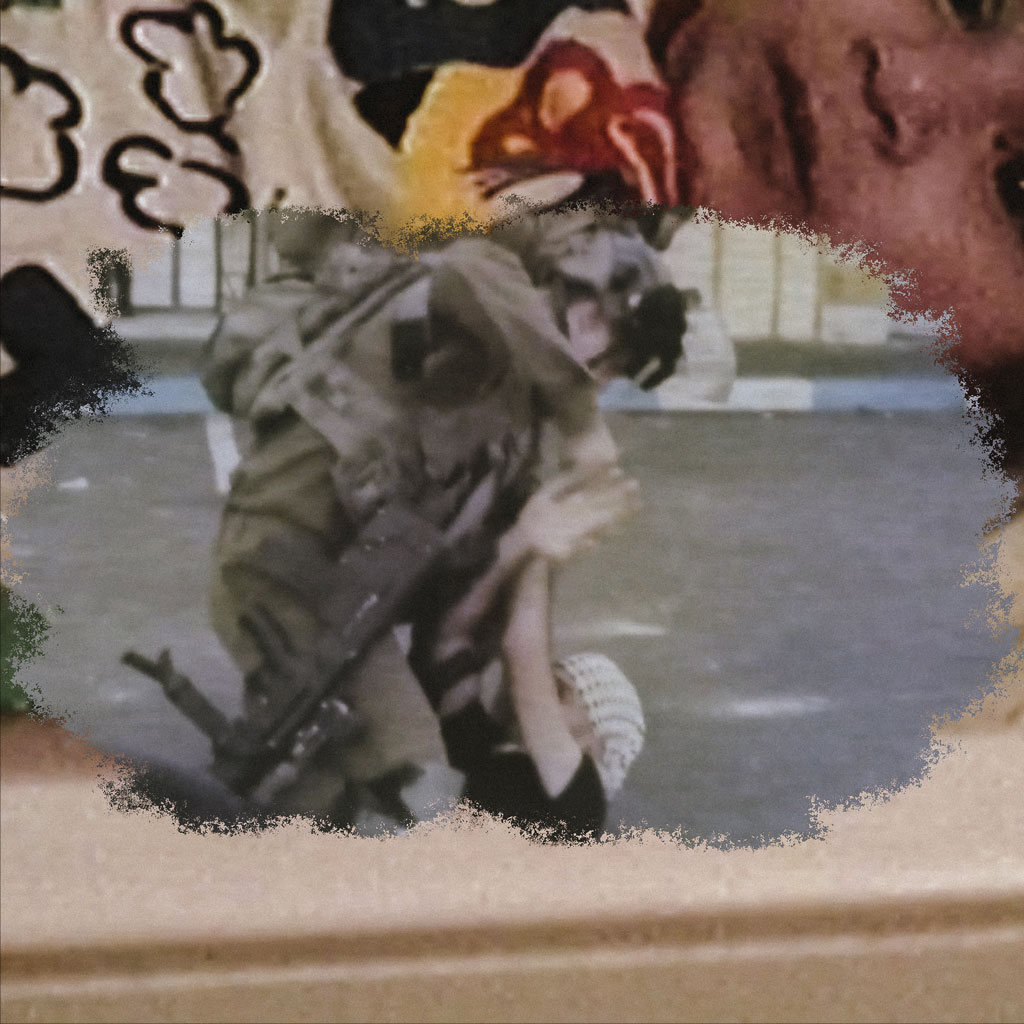
Family Archives as Primer
These reflections also support Ahmad’s curiosities around genealogy and archival materials. Recently, he found old photos of his grandparents immigrating through New York’s Ellis Island, as well as cassette tapes which have made their way onto Inheritance. Their audio samples provide a sonic bridge which “involves the past as heard through a present-day lens,” while giving a voice to the record’s many themes.
Such evocative samples can be found on “Gesso,” where a chorus of family voices are heard, speaking in Arabic. Serving as the intro and outro of the track, the samples bookend an ambient wash of pleasant sounds, reminiscent of flowing water overlaid with shiny synth twitterings. The track is what Ahmad describes as a “call-and-response,” recorded shortly after he was born.
“My dad is interviewing my sisters and videotaping it to send to my grandmother in East Jerusalem. He’s effectively saying, ‘Your brother Omar has been born. What do you think of him? Do you love him? Are you excited that he’s here?'” Ahmad translates. “And my sister Amna, very extrovertedly, is like, ‘Yeah, I guess he’s okay. Yeah, cool. I think he’s sleeping; I don’t know; I don’t really get what the big deal is.'”
Ahmad’s dad would eventually take the same video camera and tape to East Jerusalem, show it to their grandmother, and record her response.
“I get kind of misty thinking about it, because she’s the person to whom the record is dedicated. Her name is Amneh Ahmad,” says Ahmad. “She basically said, ‘I’m building everything here for all of you. I’m so happy to hear that Omar has been born. I cannot wait to meet him and to see him.'”
The track’s title, “Gesso,” takes inspiration from the paint primer that is laid on canvases to prepare them for painting. The word also has a deeper, abstract symbolic meaning for Ahmad, as the recordings provided a kernel of inspiration early in the album’s creative process.
“I treat [“Gesso”] as… the inner dream state that a child was in before they’re really sentient. It’s the ideas and thoughts and sounds floating around in a baby’s head that they don’t really understand,” he explains. “These voices have relatives floating around, talking about the significance of [an] event that they can’t possibly understand yet.”
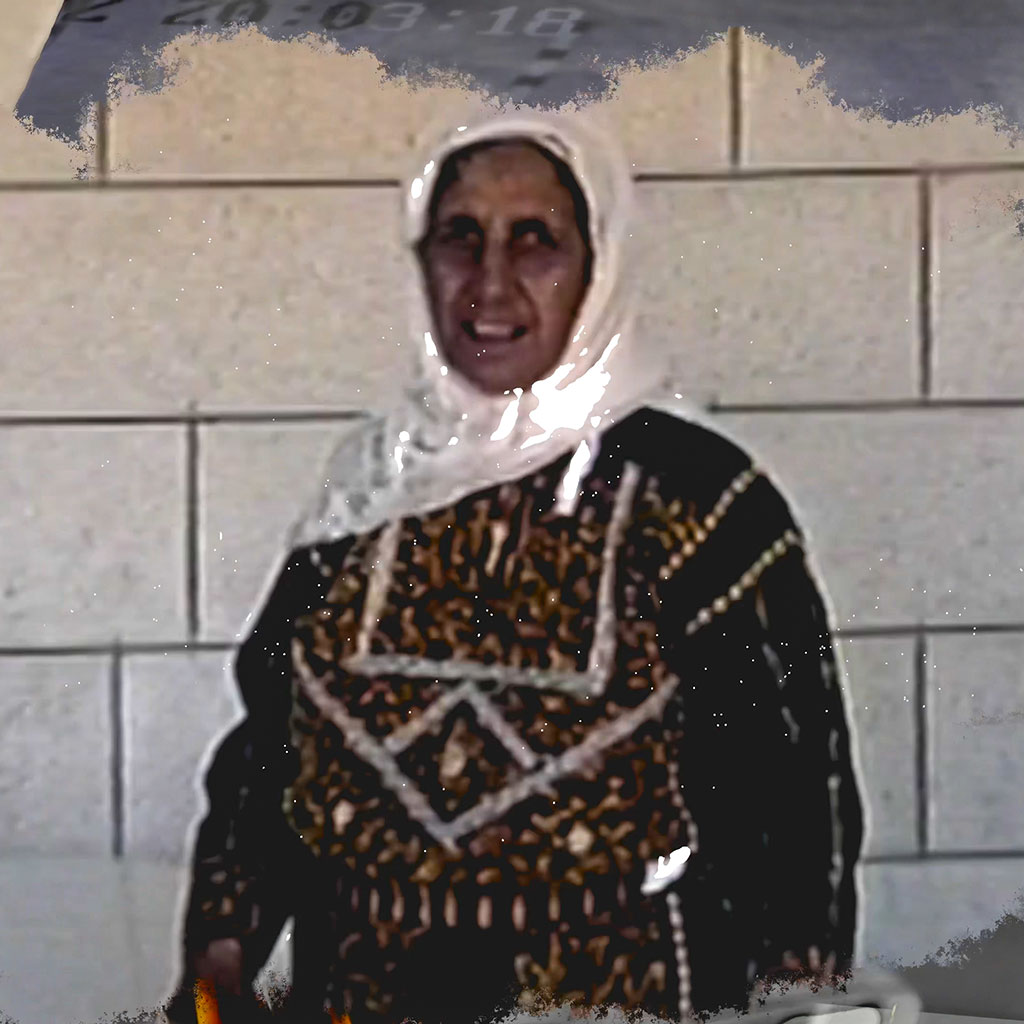
A Matriarch’s Wisdom
The presence of Ahmad’s grandmother on the Inheritance is very much intentional. Ahmad credits her as being the matriarch of the family, as well as “the reason my family, in its current state, exists the way that it does.”
“She was an incredibly entrepreneurial and tough seamstress from East Jerusalem,” he gushes. “She made a lot of amazing dresses in traditional Palestinian weaving, which takes a particular style that is local to that area, and there’s this little street named after her in East Jerusalem as well.”
Furthermore, his grandmother was the one who saved up funds to ensure that his greater family could eventually put down roots in Brooklyn. After many years of being a single parent of sorts — because his grandfather was working abroad in Brazil — his grandmother was to reunite their families, after much time had passed and contact had been lost.
“She’s the one person in my life, I would say, [who,] no matter the circumstance, has always made me feel completely unconditionally loved,” says Ahmad. “Every single person who had ever met her had such a deep respect for her as a person, but she never did a single thing for herself. And not in like a performatively selfless way, like a lot of people can do. She just really held everybody together.”
In 2017, Ahmad had been planning to move into his grandmother’s building, to an apartment across the hall from her. Unfortunately, she passed away right before that happened — but creating the record in that space did provide an unexpected sense of poetic inspiration.
“The entirety of the album was written in the same house that I first lived in, which was her home, so all of the sounds were recorded in the same space that she used to occupy in Carroll Gardens on DeGraw and Henry Street,” he explains. “I think it felt necessary.”
A Multicultural Approach to Collaboration
Ahmad’s multicultural upbringing is also evident in the way he approaches his collaborative efforts. In the music video for “Lapses,” which feels like a mixed media mashup of time and place, Ahmad worked with illustrator and painter Singha Hon and Andrew Charles Edman (ACE). Both Hon and ACE are biracial artists, and while Ahmad is not biracial and does not claim to have a similar experience to them, he believes there’s something about “being split between two cultures, two ideologies, or… seemingly opposing forces” that provide common ground for their shared creativity.
“The goal was really to create a visual and audio space that could somehow summarize being like a Third Culture individual, where it’s really truly torn and split between two regions — neither of which I feel like I can fully call my own,” explains Ahmad. “I’m definitely too Arab to be considered the average American and too American to be considered the average Palestinian, so there’s a certain desire to convey that.”
Ahmad intentionally strayed away from CGI or over-reliance on the digitized abstractions ambient artists often gravitate towards. The video incorporates the analog medium of painting, which felt aligned with the record’s archival aspects and physical forms of media; it also reminds viewers of the colorful portrait of Ahmad which Hon created for the album artwork.
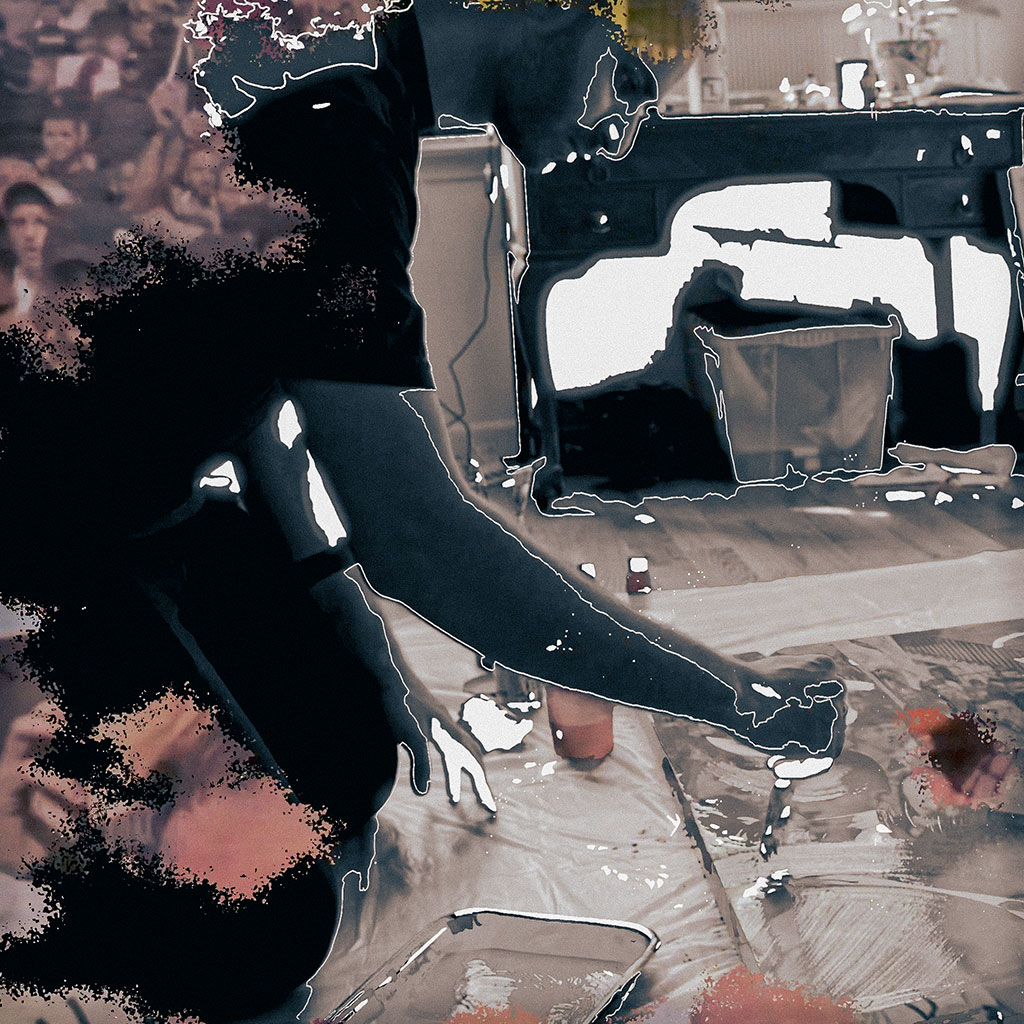
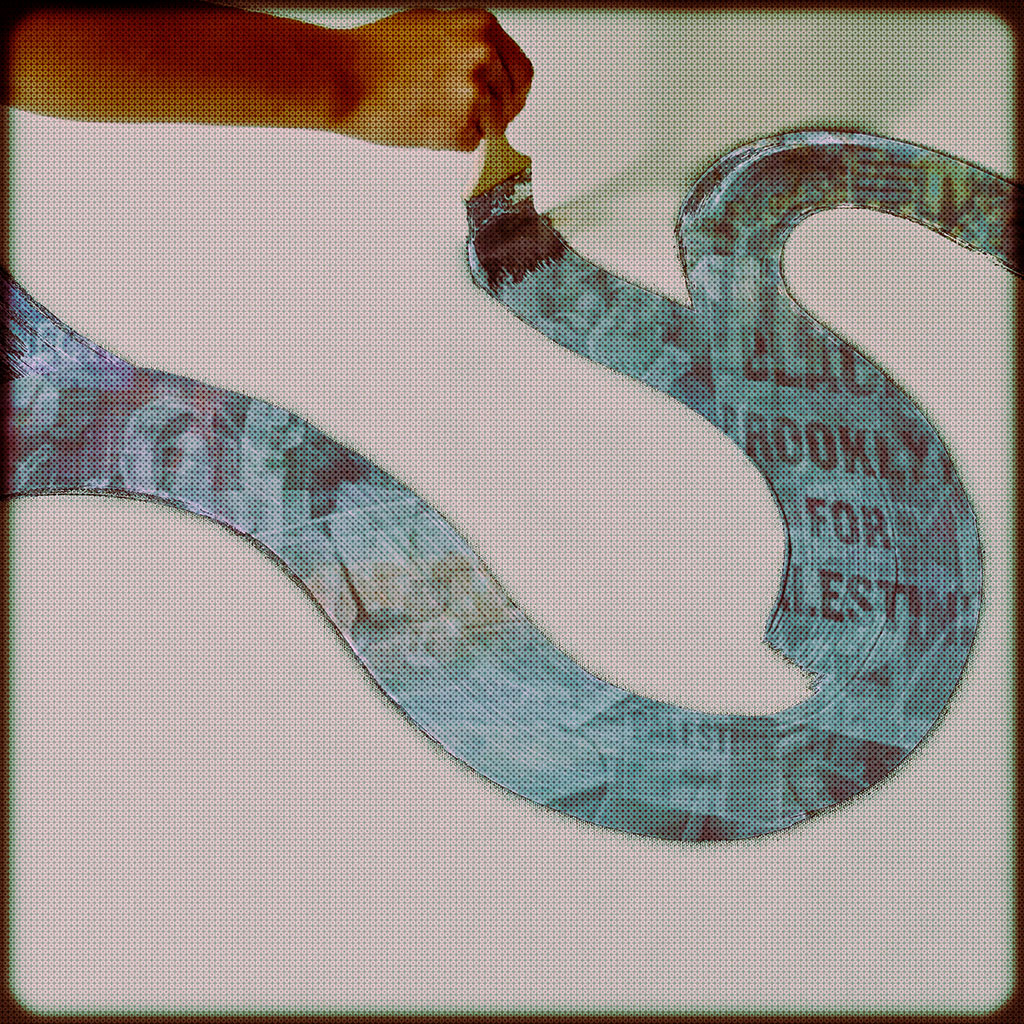
“Lapses” also incorporates archival video footage, including images of New York protests against Israeli occupation. Another dramatic clip shows an Israel Defense Forces soldier kneeling on the neck of a Palestinian man whose name was also Omar, by sheer coincidence. Ahmad overlaid the image with the simple portrait of an Arab American family.
“While my childhood was complicated and challenging at many turns, it paled in comparison to the struggles of a mirrored version of myself who could have grown up in East Jerusalem,” explains Ahmad. “Part of [the video] is a cautionary tale to Arabs in the U.S. who rest on the laurels of the struggles of those abroad, and who quickly claim victimhood as a part of a conflict that doesn’t actually affect them directly on a daily basis. What we feel as the diaspora is real and deserves its own focus and compassion, and there’s room for all of these conversations. We just need to have them with integrity and to honor those who have sacrificed the most.”
Bridging the divides further, Ahmad was able to use the release of Inheritance as an opportunity to make a mixtape for Radio Alhara – a pirate radio station based out of Bethlehem which has been associated with well-known electronic musicians like Nicolas Jaar. The mixtape features experimental Palestinian artists like Muqata’a and also serves as a personal milestone for Ahmad.
“To know that it was premiering in Palestine at the same time that it was premiering in the U.S. literally made me teary-eyed, because I never thought that would be remotely possible,” he explains.
The last time Ahmad returned to Palestine was in 2017, and his 2020 trip was sidelined due to the pandemic. Now on the heels of Inheritance, he hopes to return sooner than later to conduct archival work, make recordings, and meet up with Palestinian musicians.
In the meantime, Ahmad is also bringing global sounds to Brooklyn. In collaboration with Alicia Coleman aka DJ Miss Alicia, he has created a dance party called Ūmboma, which features Arab, African, and Latin dance music — as well as a smattering of other sounds from the global South. Its name is a made-up amalgam of words comprised of: umma, which means “greater family” or “congregation” in Arabic; libertad, which means “freedom” in Spanish; and ngoma, which means “dance” in Swahili. Effectively, Ūmboma is “a congregation of freedom and dance,” and its goal is to create a sonic blend that never feels forced, kitschy, or gimmicky, but points out the many ways in which rhythm and dance are universal.
“A lot of these regions in particular are regions where there’s been so much great suffering and co-opting of their cultures and appropriation of their cultures,” says Ahmad. “So to be able to let the music breathe and pay homage to the artists directly, rather than listening to a deep house track with some Arab vocal in the background by someone named Sven in like Finland on some deep house chart… [is the goal].”
Whether as an experimental composer or DJ and show promoter, what’s clear is that the throughline of Ahmad’s work is one that shows pride and curiosity in his lineage. It’s his Inheritance, in all its multifaceted glory.

